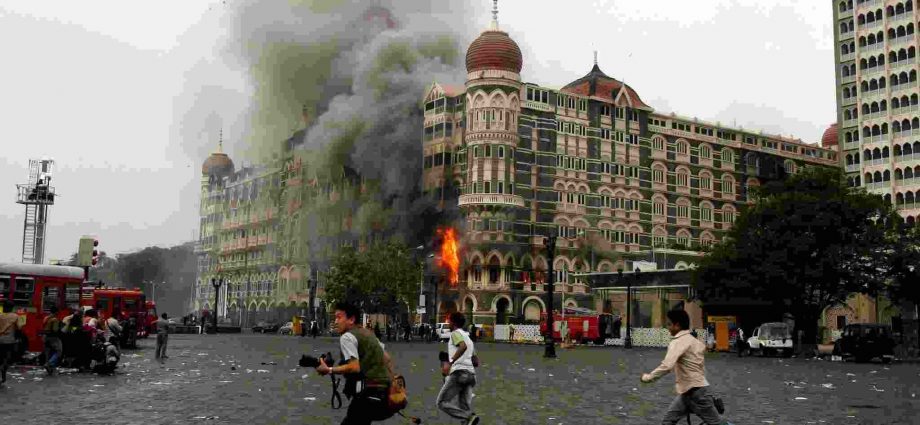The Mumbai attack became a role model for other terrorist attacks, for instance the 2015 Paris attacks.
Mumbai is a major global mega, multicultural city and the staggering death toll from the attacks reflects this fact: At least 174 innocent citizens from 24 countries including India, Australia, U.K., U.S.A, and Israel were killed and 304 were wounded.
Of the ten attackers, only one, Ajmal Kasab, survived to reveal the plot. Pakistan confirmed Kasab to be a Pakistani citizen. The whole world, including Pakistan, condemned the attacks. President Obama strongly supported efforts to bring the perpetrators to justice. But little progress has so far been made to bring all those involved in these attacks to justice.
Also read: Terrorists mow down 84 people in French Riviera
The ringleaders of the attack have not yet been adequately punished as trials continue endlessly in Pakistani courts.
Mumbai was chosen for the attack for several reasons:
- First, Mumbai is the financial capital of India housing both the Bombay Stock Exchange and the Reserve Bank of India.
- Second, the extent of wealth in Mumbai can be gauged from the fact that this city alone accounts for one-third of India’s direct tax revenue.
- Third, Mumbai is home to India’s Hindi film industry which has a very large clientele all over the world and accounts for a fair bit of India’s soft power.
- Finally, at least since 2003, the Indian economy was growing in excess of 7 per cent per annum – something which would not have been going down well with Pakistan, which was then and continues to now, go through difficult economic times. Targeting Mumbai had the potential of shaking confidence in India and her economy – particularly for foreign investors who had by then started to invest in India in large numbers.
And, India’s economy did slowdown in 2008 – but perhaps more on account of the Global Financial Crisis than the Mumbai terrorist attacks. The then opposition was not in a position to capitalise on the fallout from the attacks and lost the parliamentary elections of 2009.
However, since it came to power in 2014 the Modi government has tightened up internal security considerably. Perhaps this is one of the lasting legacies of the Mumbai terrorist attacks. It is not entirely coincidental that the economy also started to improve in 2014, until it was hit by the corona pandemic.
This line of inquiry is not my area of expertise – however I have written about it because it is particularly galling that twelve years after the horrendous attacks, many who were responsible have yet to be brought to justice.
The world needs to be reminded of this heinous event and pay homage to those who were killed.
This story was originally published by the Hindu Council of Australia.
(Professor Raghbendra Jha teaches Economics at ANU and is Executive Director of the Australia South Asia Research Centre in the Ardnt-Corden Department of Economics at the Crawford School of Public Policy. He is a Fellow of the World Innovation Foundation and also sits on many editorial boards, specialising in Development Economics, Macroeconomics, and Public Economics with numerous publications to his credit.)
Similar Posts by The Author:
- The Australian government has introduced new cyber security laws. Here’s what you need to know
- MCG – SCG Walk 3.0 by Dr Prabodh Malhotra
- Are you at then end of your visa and need to complain against employer exploitation ? A New & FREE ‘workplace justice visa’ will help
- NAIDOC Week: A chance to celebrate Indigenous Science, Technology, Engineering and Mathematics
- A Tribute – Shardhanjali to Mrs. Indumati Pande

